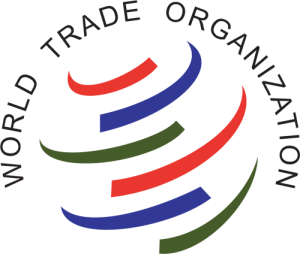 The Islamic Republic has the highest average tariff rates in the entire world, a fact that will make it difficult for it ever to enter the World Trade Organization (WTO).
The Islamic Republic has the highest average tariff rates in the entire world, a fact that will make it difficult for it ever to enter the World Trade Organization (WTO).
What’s more, Supreme Leader Ali Khamenehi has publicly told the government to protect Iranian industry from foreign imports, which points to the likelihood of even higher import duties. Khamenehi himself ordered that a lowering of import duties on automobiles be reversed a few years ago. The Ahmadi-nejad Administration had sought to force the Iranian auto industry to improve quality by lowering tariffs.
Last week, Trade Minister Mohammad-Reza Nematzadeh boasted that his ministry had lowered average tariffs by a full percentage point, and said that was in line with WTO requirements.
He specifically said that Iran’s average import tariff had been lowered from 19.7 percent to 18.7 percent.
But a tabulation of import duties shows no country has average duties that high. The closest to Iran was the Republic of the Congo with tariffs averaging 16.5 percent. Next in line were Benin and Bermuda with 15.6 percent each.
Only 17 countries had average tariffs in double digits and seven of them were small island states like Antigua and Grenada.
Nematzadeh gave only a single example of a tariff that was lowered. He said the duty on imports of saffron had been 75 percent. He didn’t give the new tariff. But Iran is a saffron-exporting country—in fact, the world’s largest exporter of saffron.
The WTO has been a controversial issue within the Islamic Republic, with many people opposed to dismantling Iran’s trade barriers as required to gain membership while others argue Iran must join the WTO if it seriously wants to keep boosting its non-oil exports. Eighty percent of the world’s countries are WTO members and most of the non-members are ministates.
Dismantling trade barriers would be a major step economically as it would open Iran to much more competition. It would also be major step politically as it would mean Iran was dismantling much of the ideological structure it put in place after the revolution to keep Iran apart from the rest of the world.
After years of debate following the revolution, Iran filed a membership application with the WTO July 19, 1996, under President Ali-Akbar Hashemi-Rafsanjani, who was firm on the need for WTO membership. But Iran then did nothing about the application for years.
In 2001, some WTO members proposed taking up Iran’s application, but the Bush Administration vetoed that every quarter until May 2005. With the US opposition, Iran suddenly became vocal on its desire for membership. It regularly complained about the Americans for blocking its membership. Other countries took up Iran’s case and criticized the United States. Much of Europe argued that the problems with Iran would be solved if the Americans only showed less hostility and pressed President Bush to start that process by lifting his block at the WTO.
In 2003, the WTO issue became the major concern of the European Union, which saw the United States as being unreasonably hostile to Iran and the cause of the many frictions.
In 2005, the then newly appointed secretary of state, Condoleezza Rice, agreed and convinced Bush to allow the Iranian application to advance in May 2005. A formal Working Party was established that month. Iran was told to name a member to the Working Party. A full 10 years have now passed and Iran has named no one to the Working party, which, as a result, has never met.
Iran was also required to submit a memorandum describing its current trade regime so the WTO could see what needed to be changed to bring Iran in line with WTO rules. Iran finally submitted that memo November 24, 2009—4-1/2 years after the Bush Administration veto was lifted.
The WTO has sent Iran a series of questions about the facts in its 2009 memorandum. In August 2011, Iran said it was about to answer those questions. The WTO’s website shows that as of Monday, no answers to the questions have yet been received.
The Islamic Republic regularly and bitterly complained about the Bush veto, but has been silent on why it has delayed acting on its application for longer than the Bush veto held up the application. And earlier this year it adopted a new tack of saying Washington was to blame for the Working Group not working.
The WTO told the Iran Times the Islamic Republic must appoint a member to the Working Party before the Working Party can meet and start active negotiations for Iran’s membership.




















